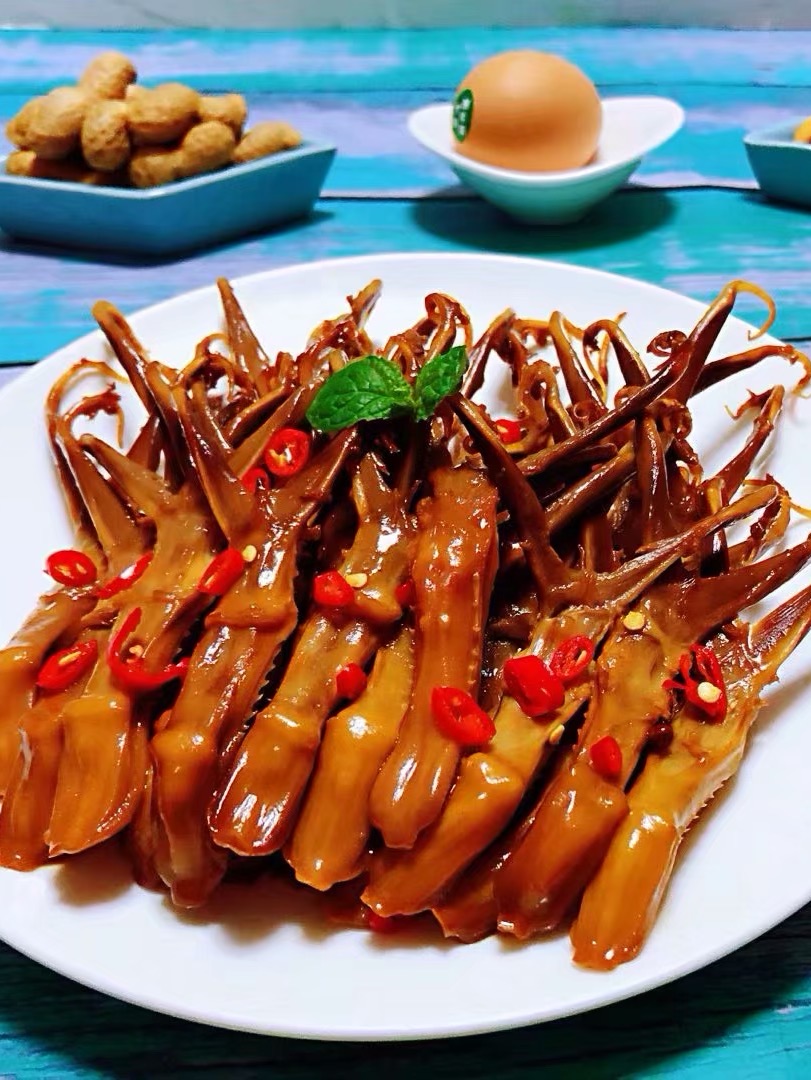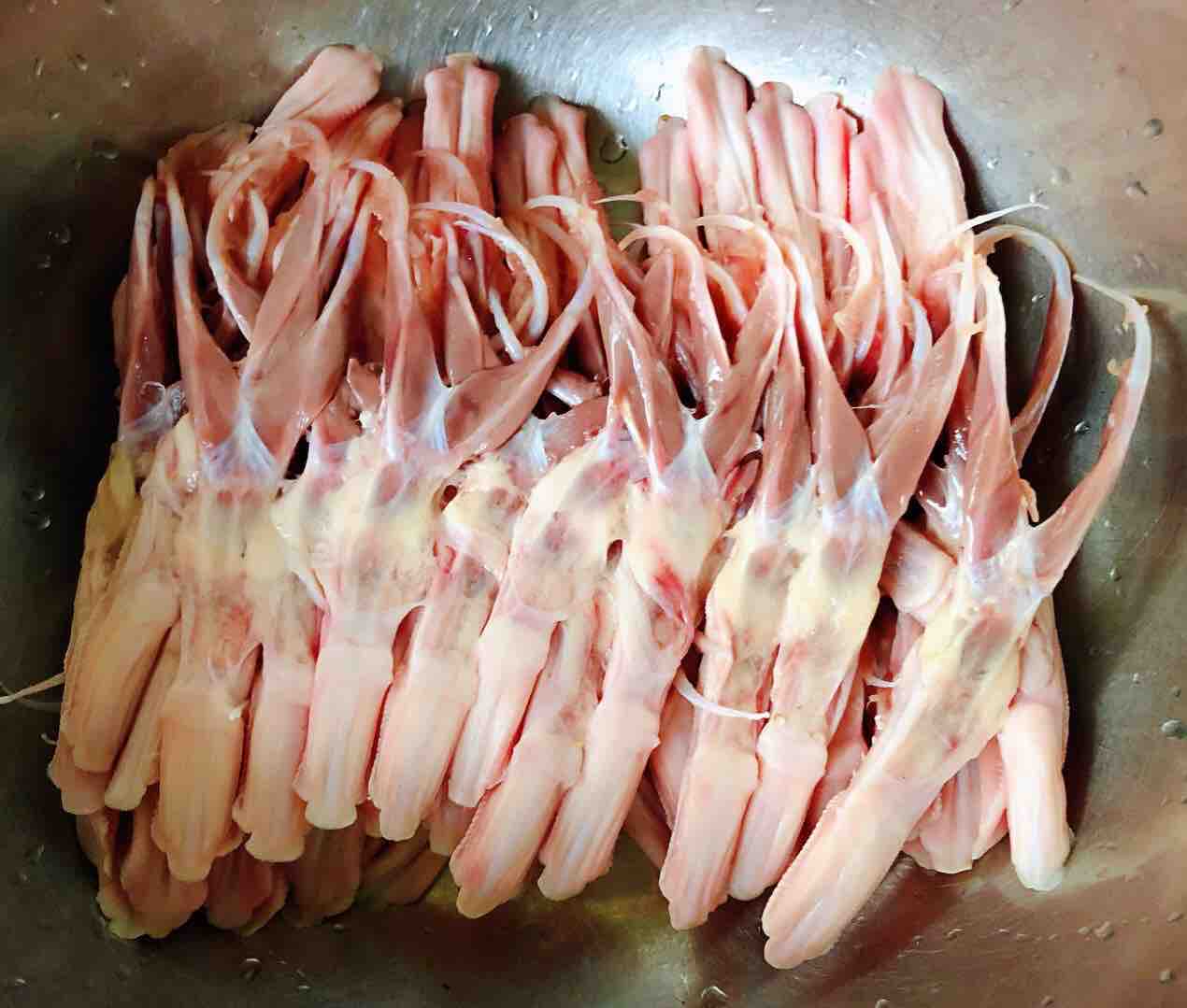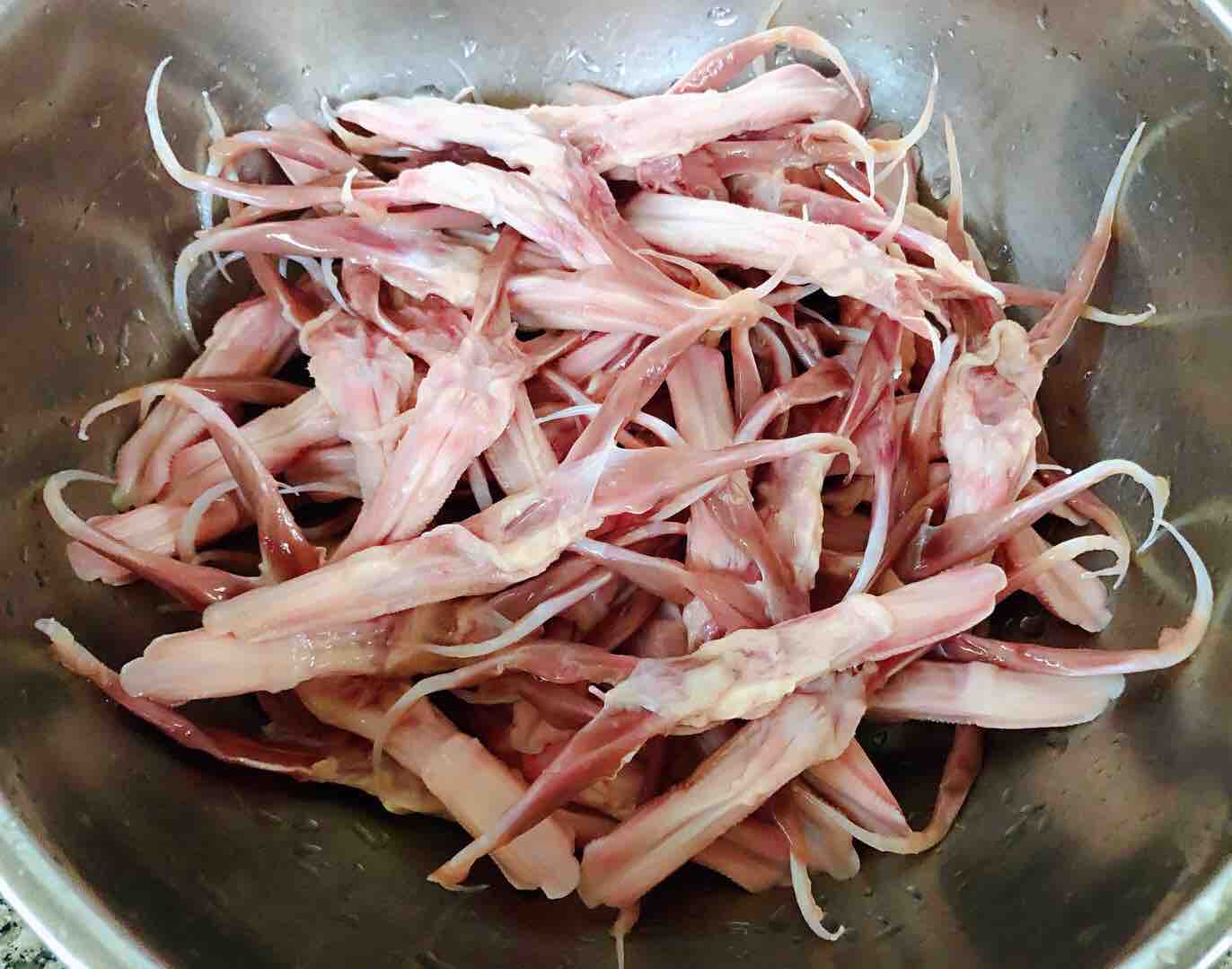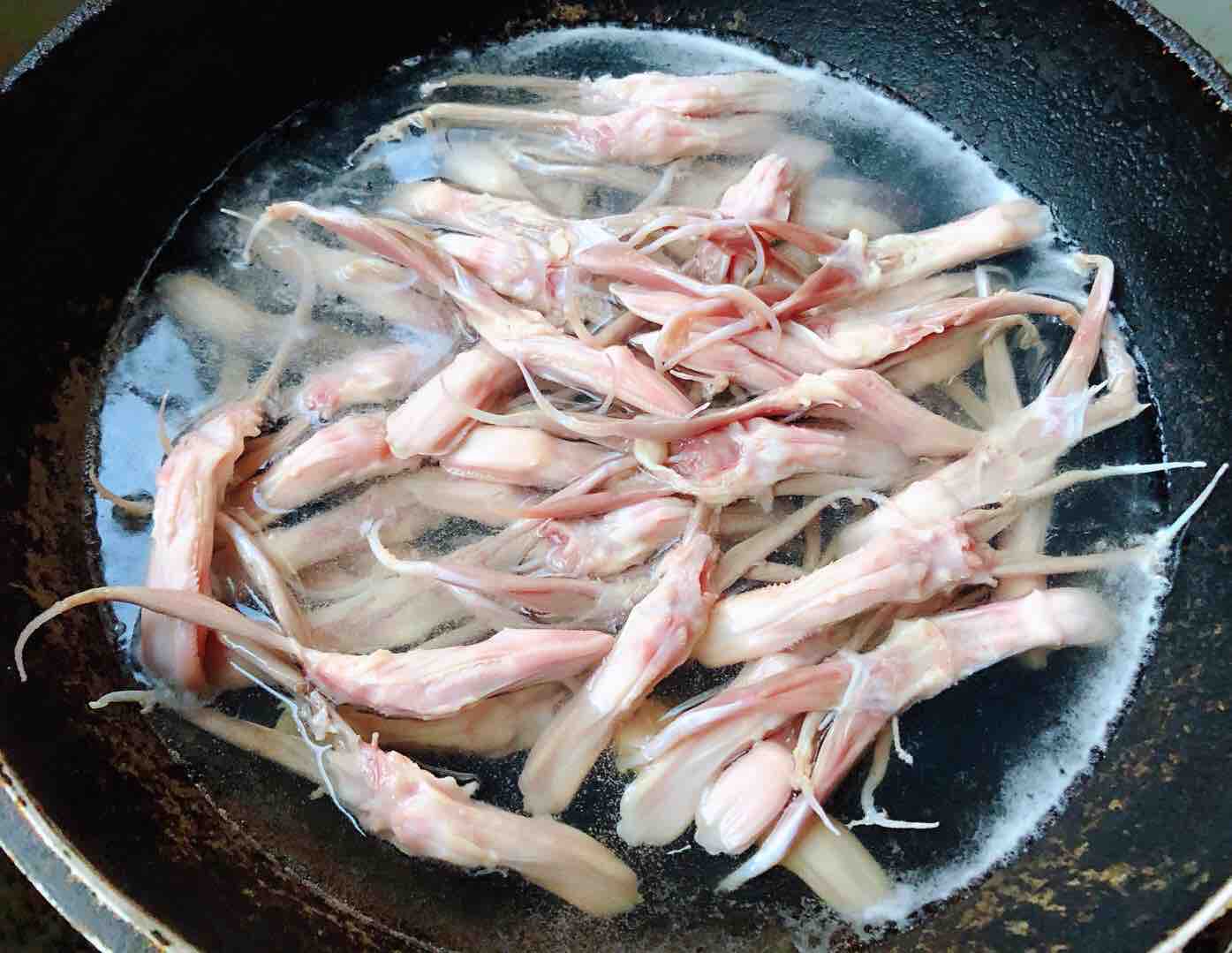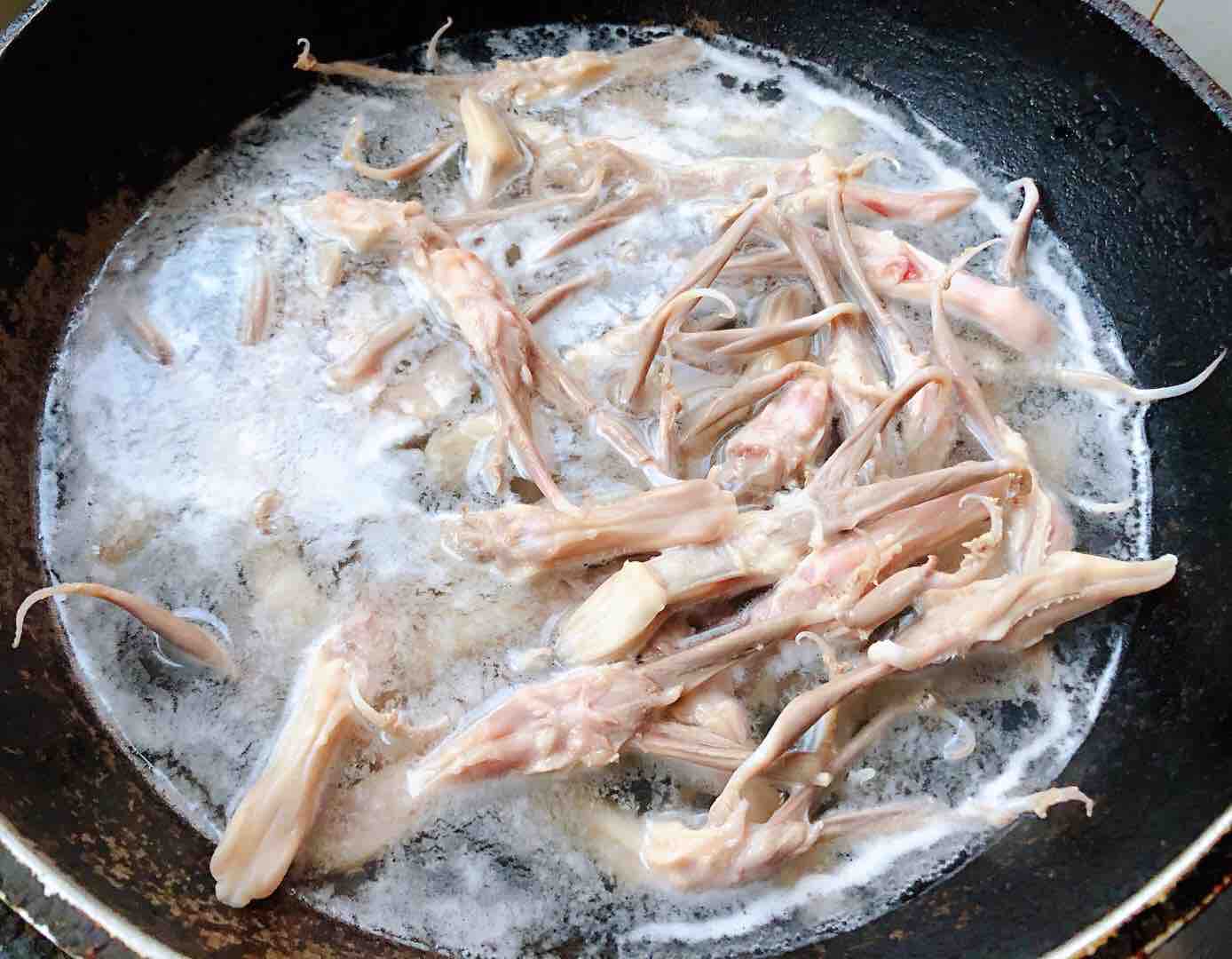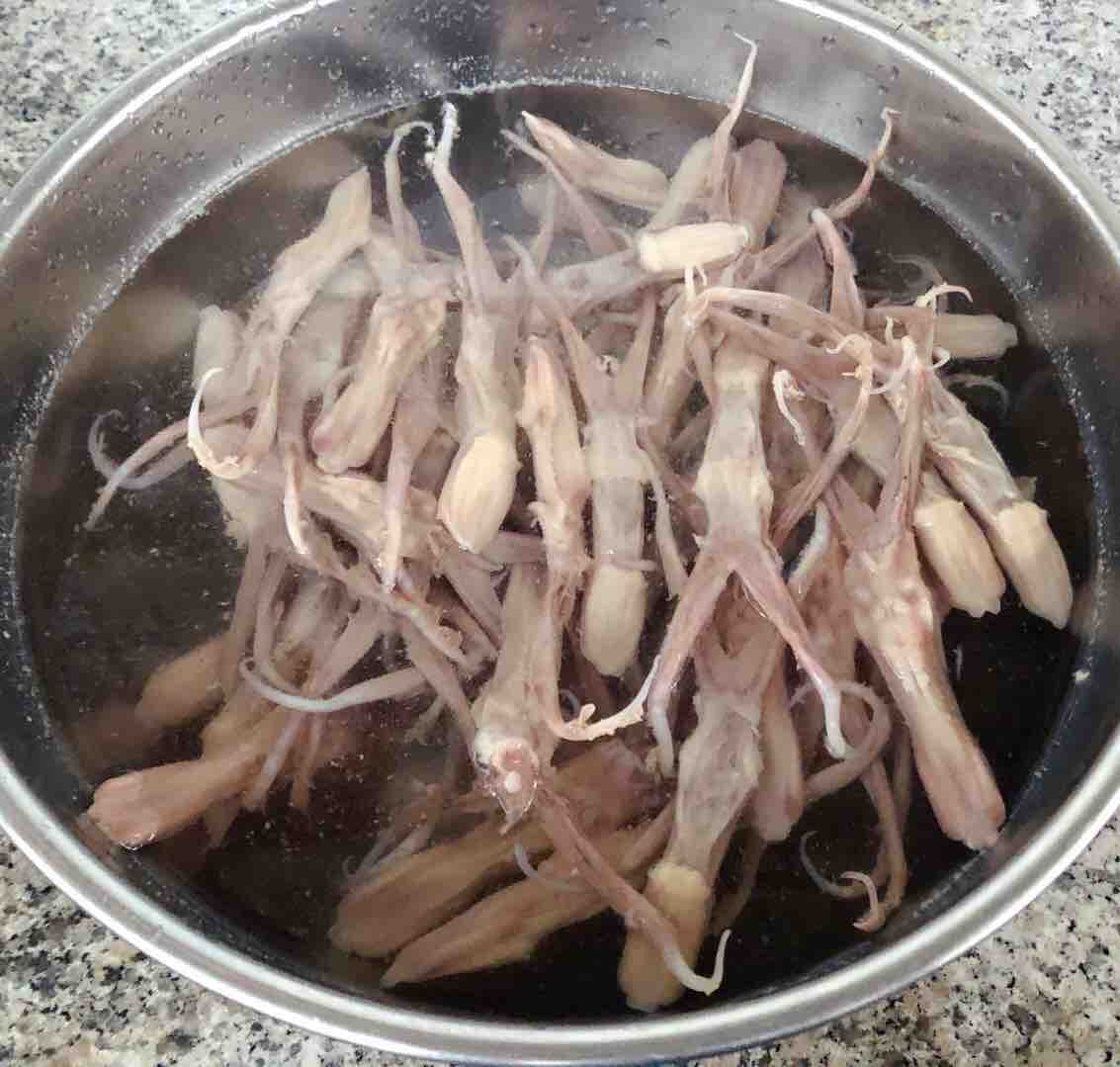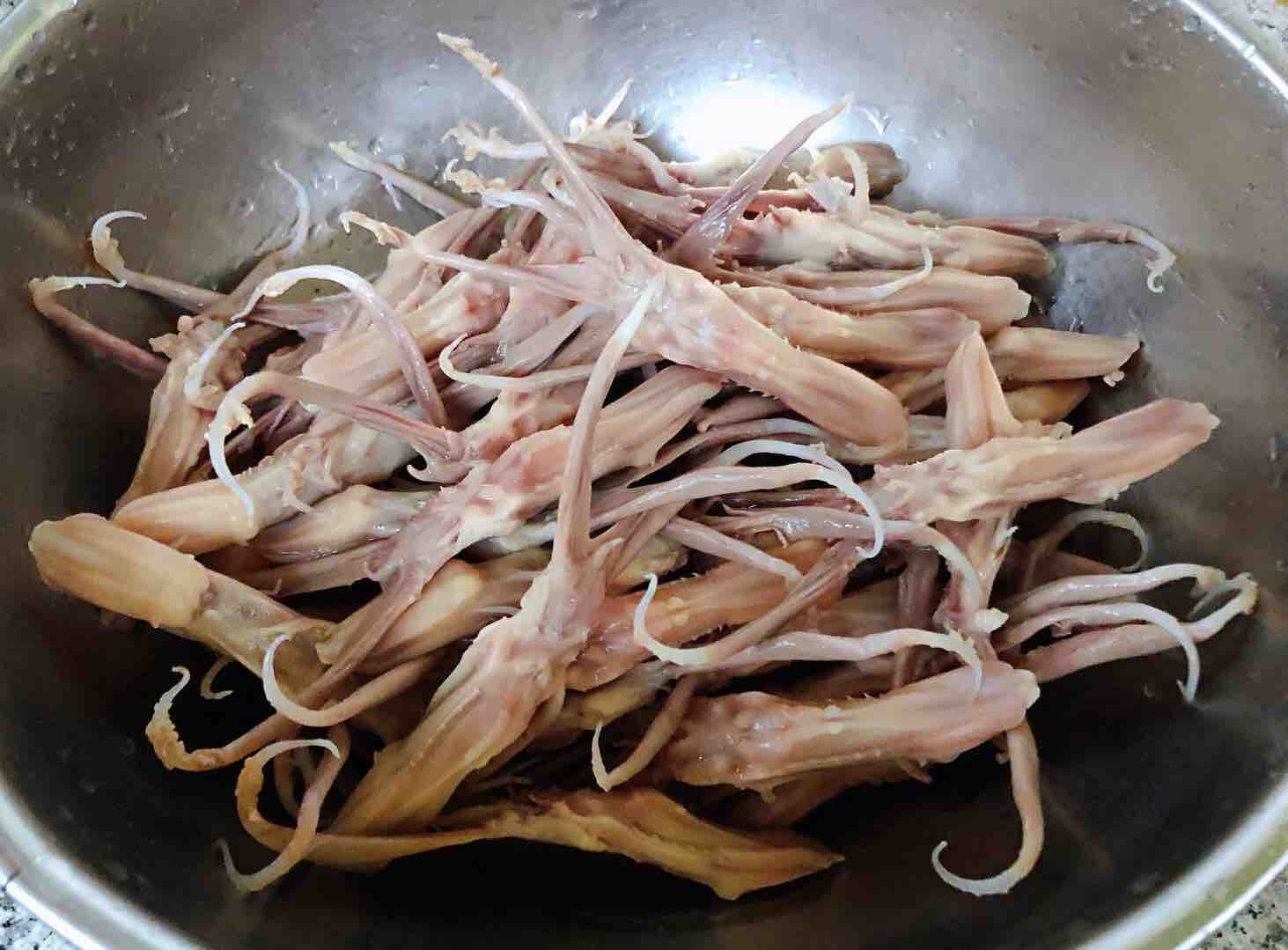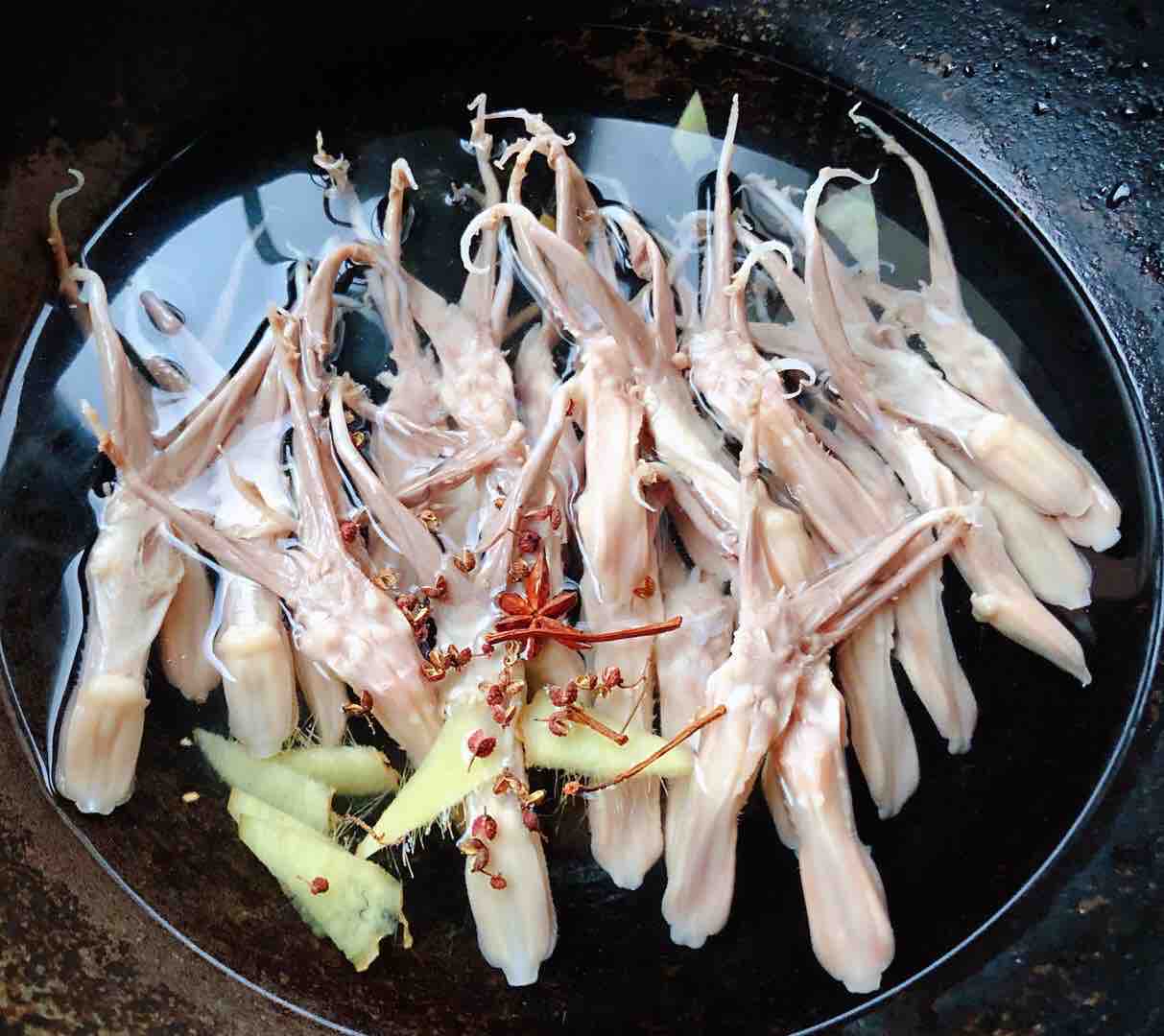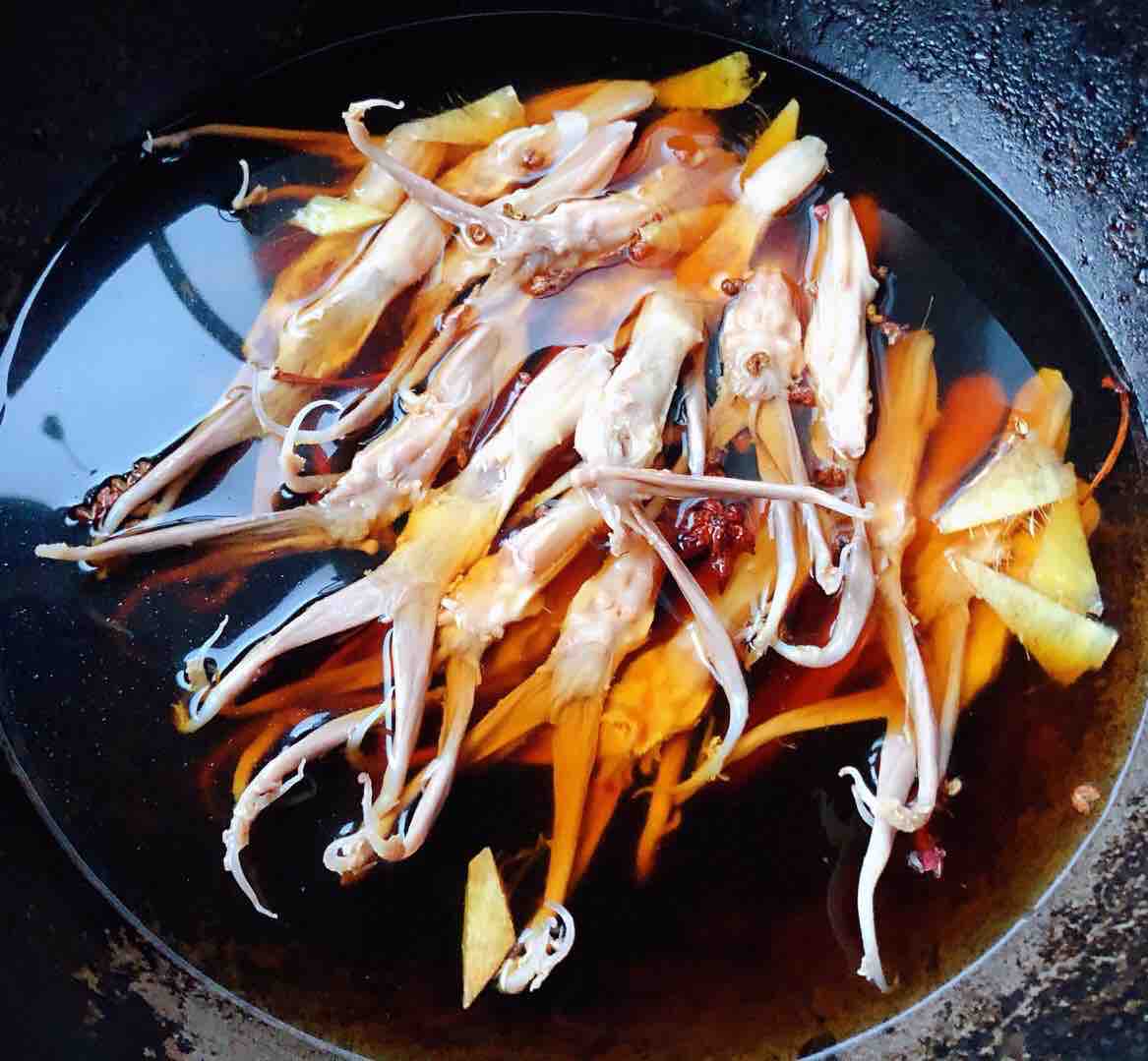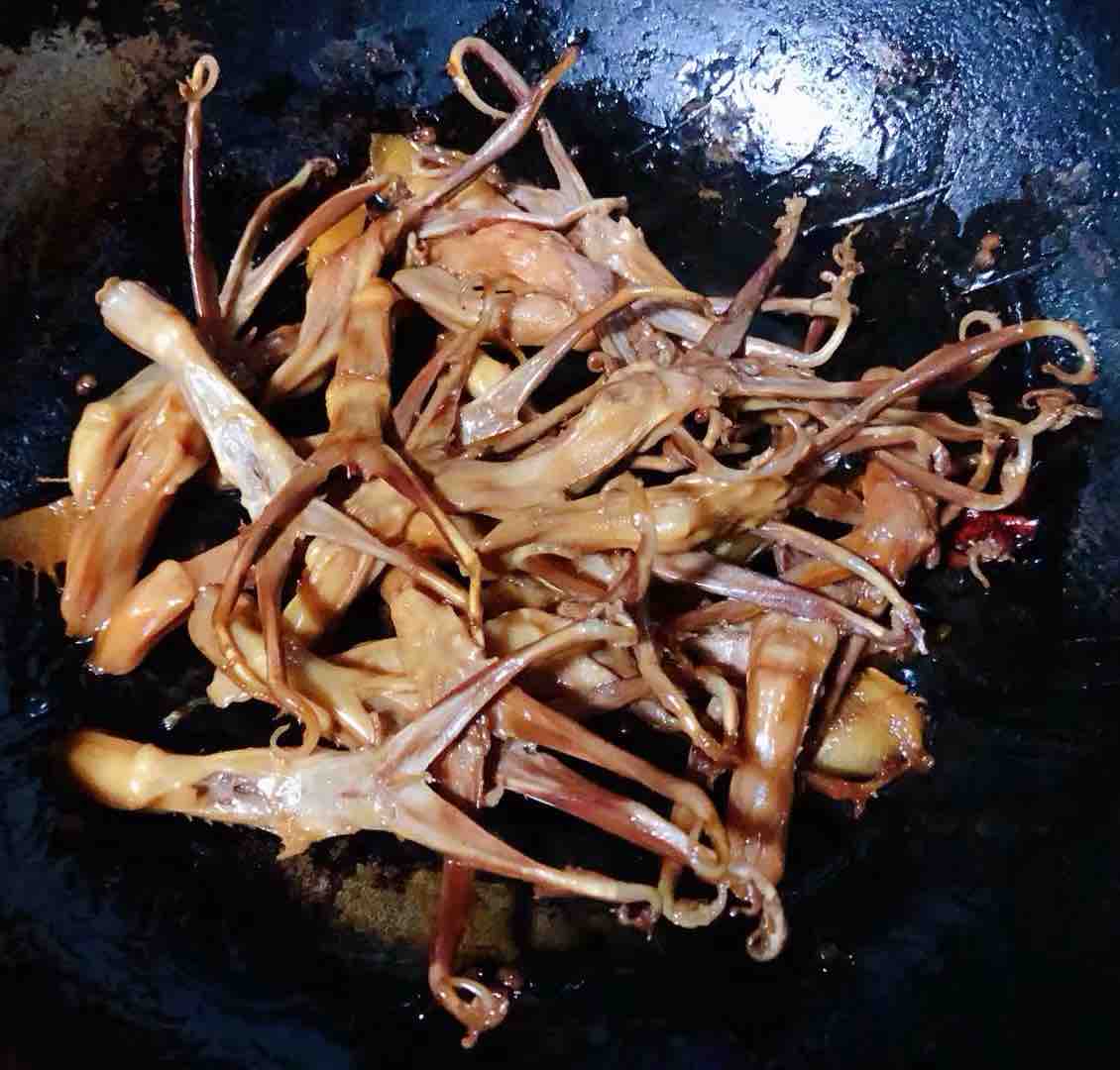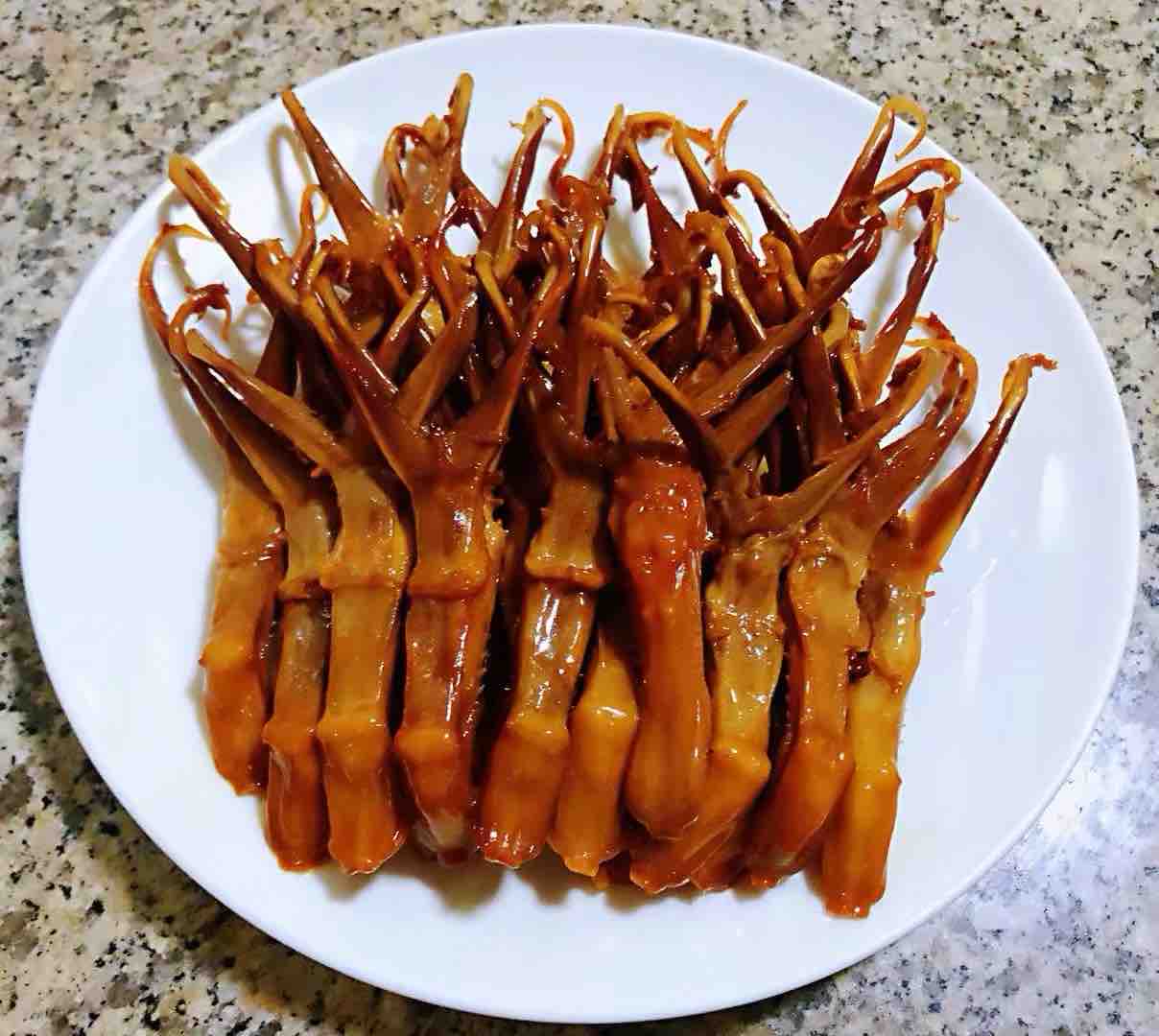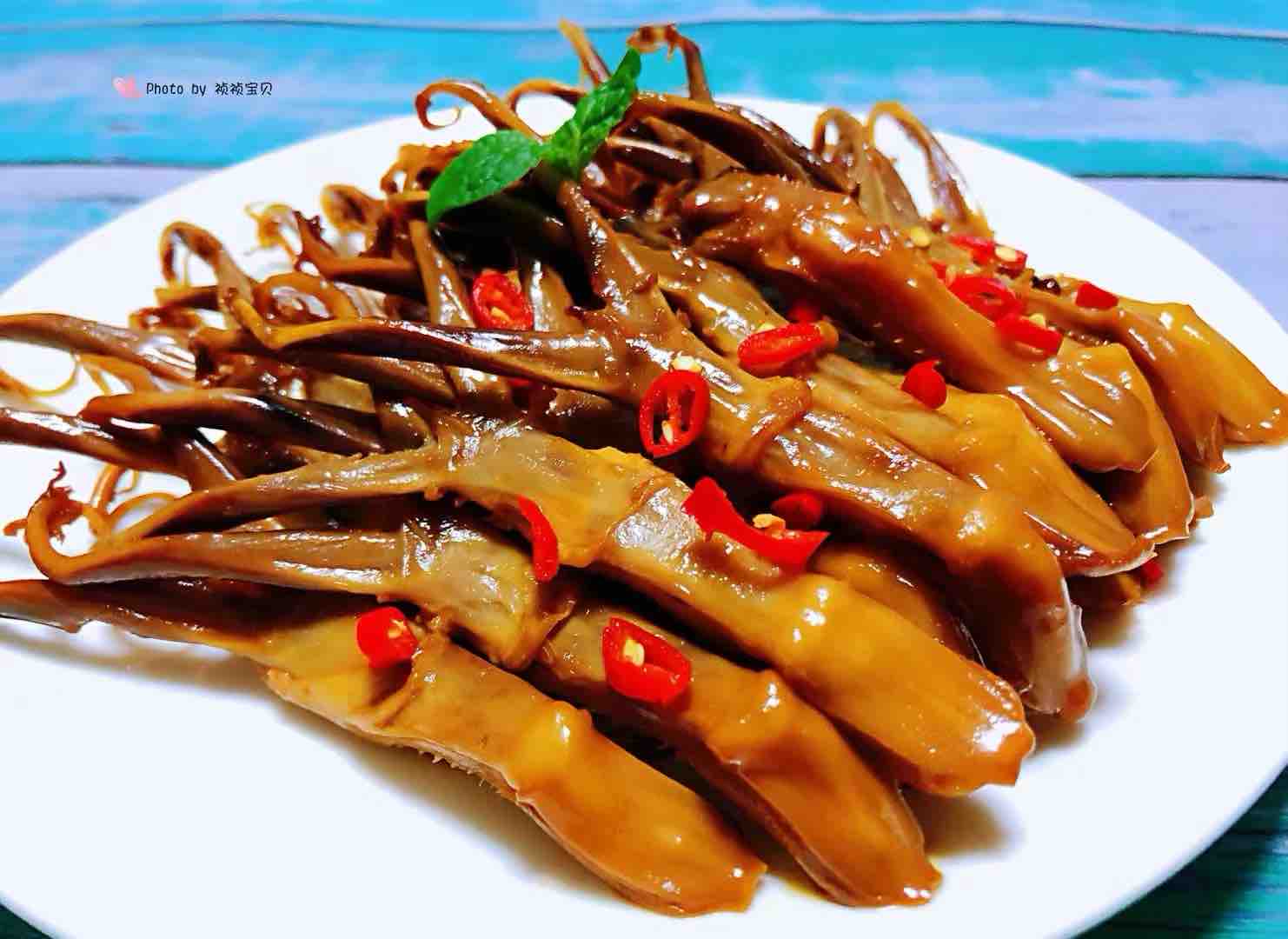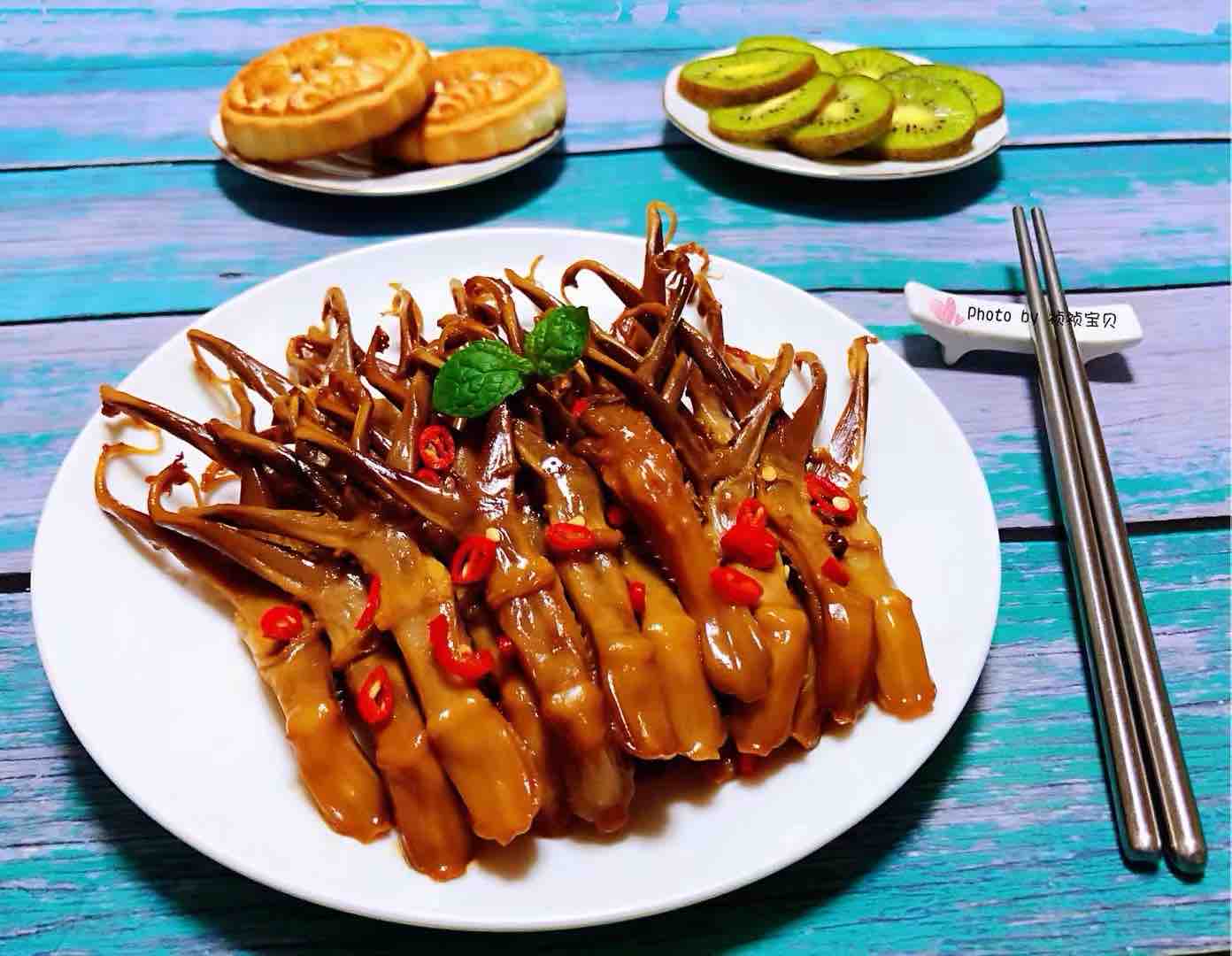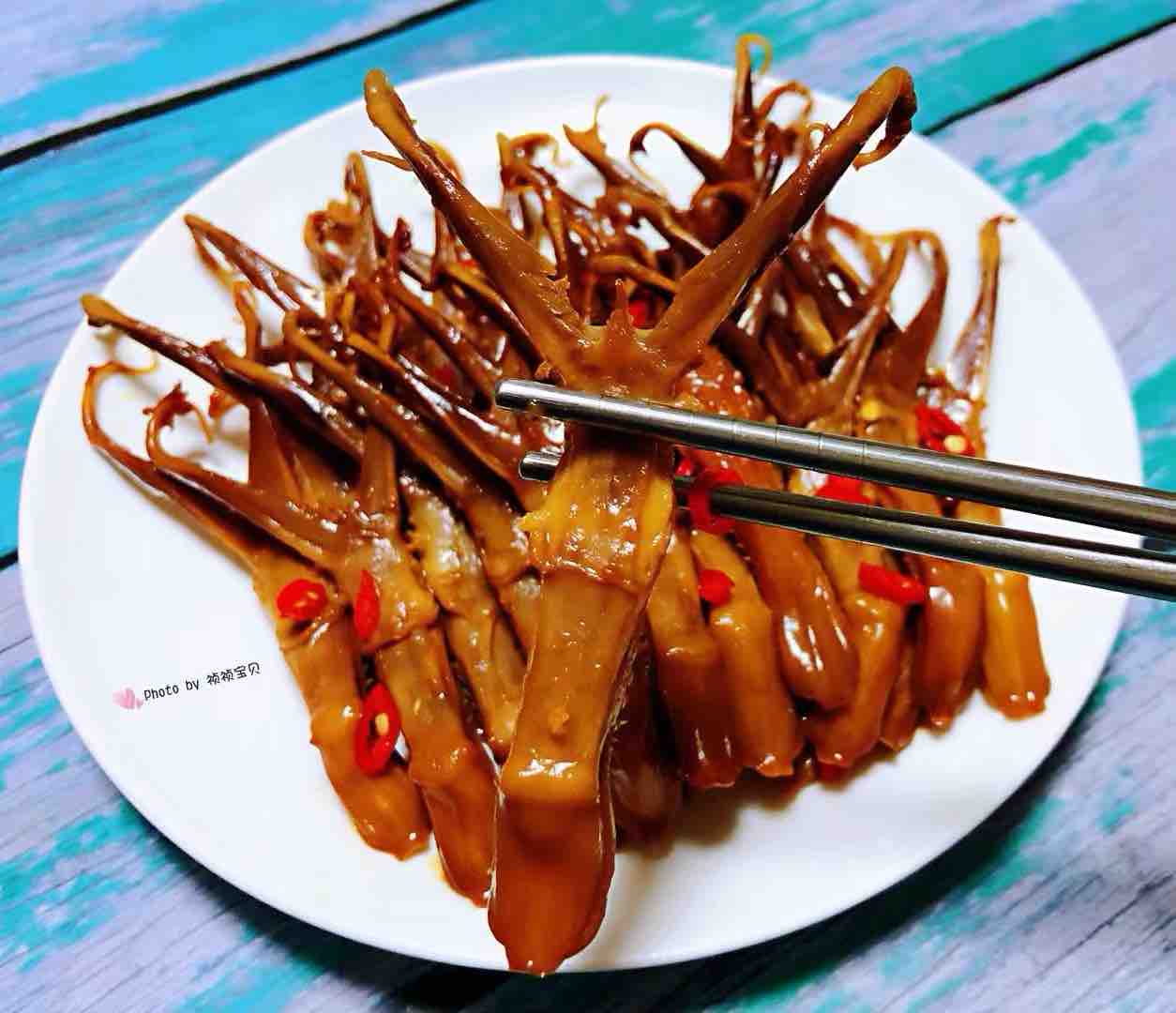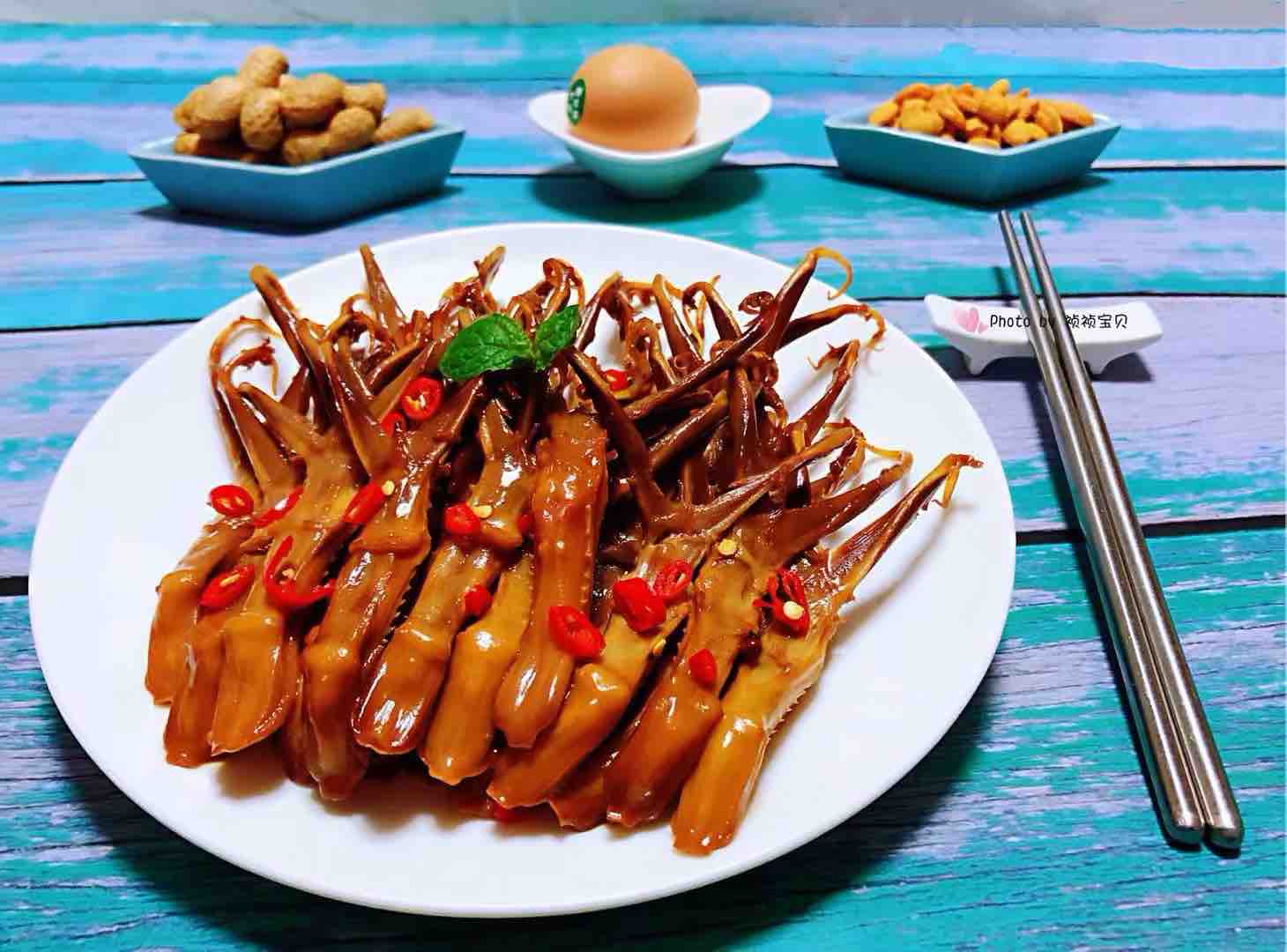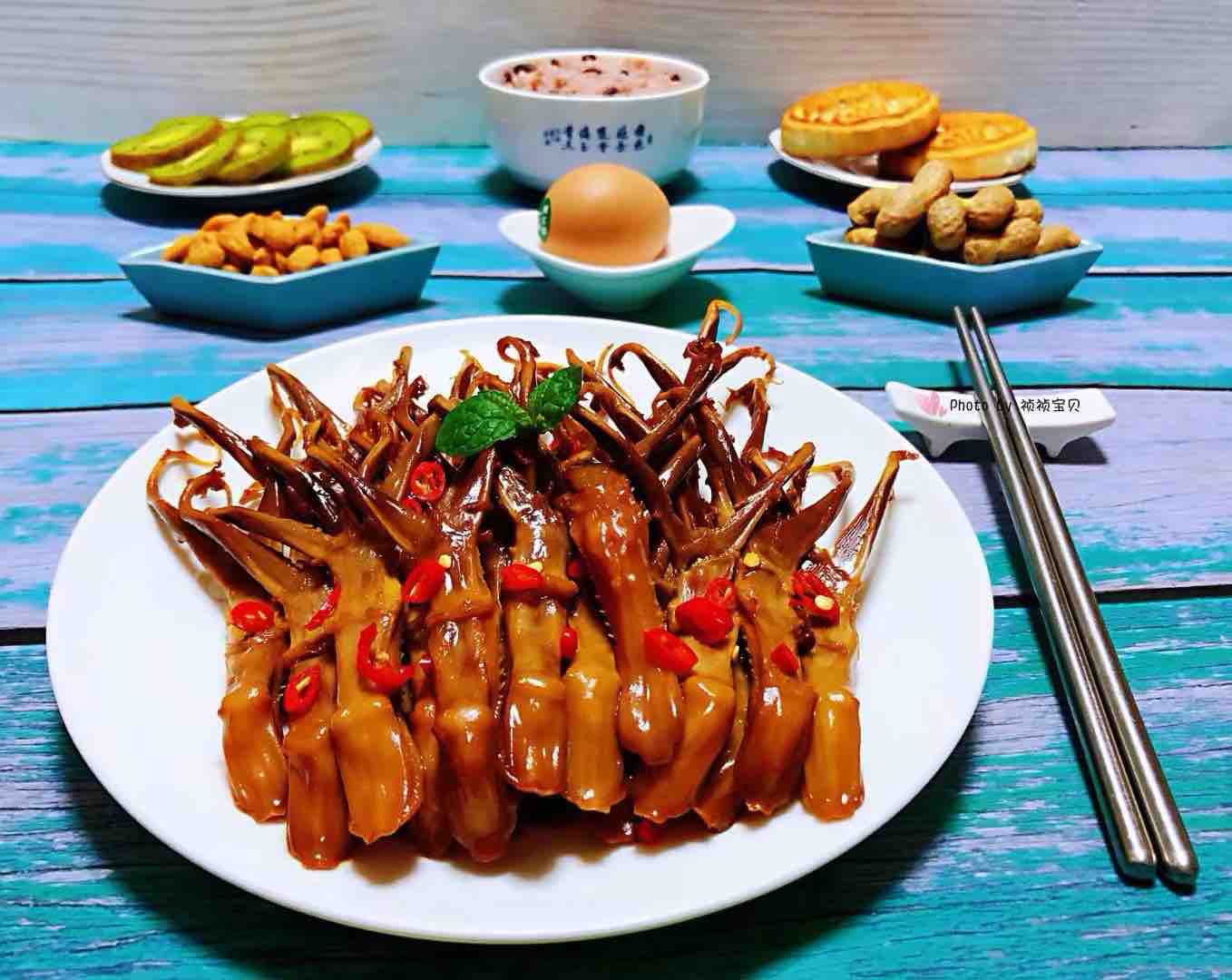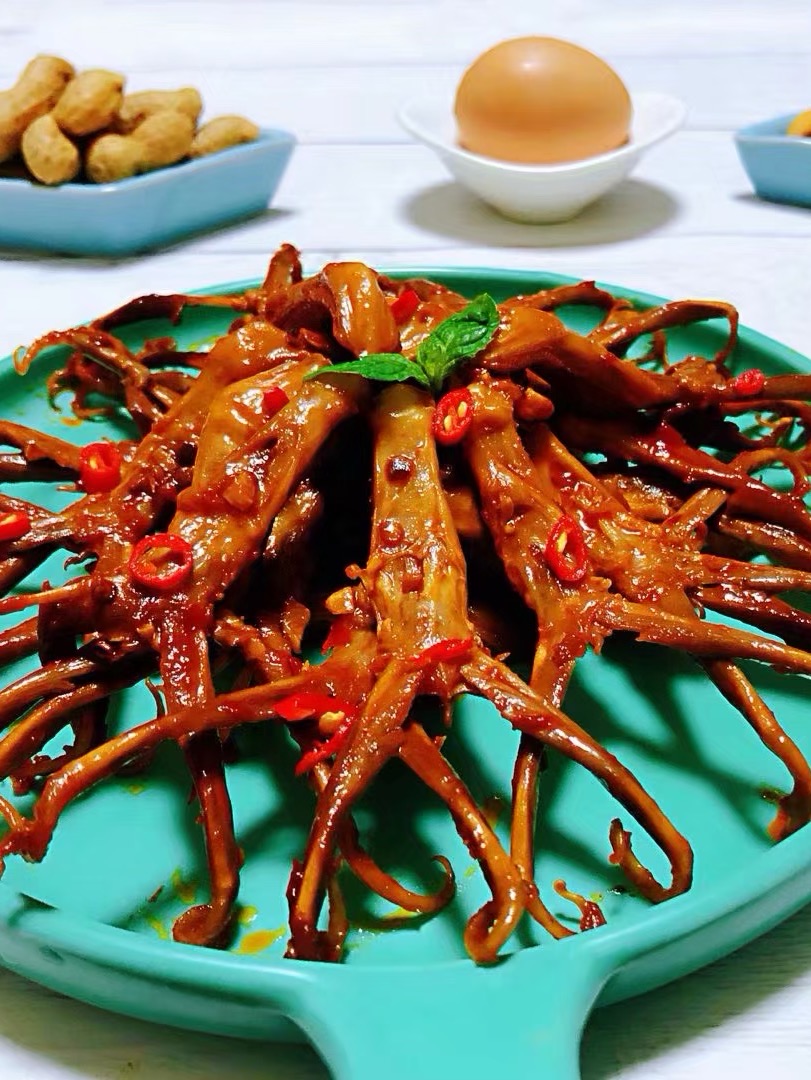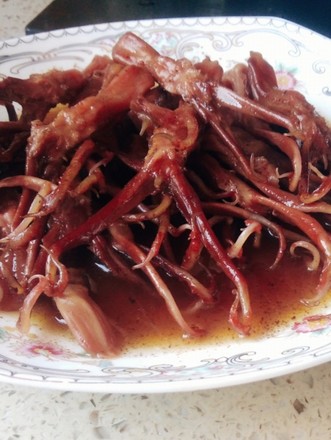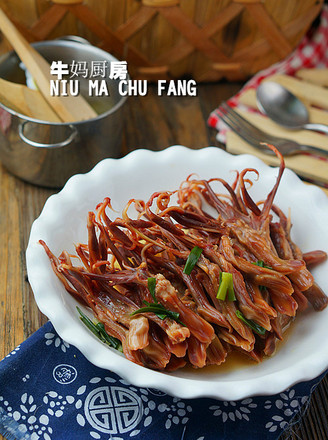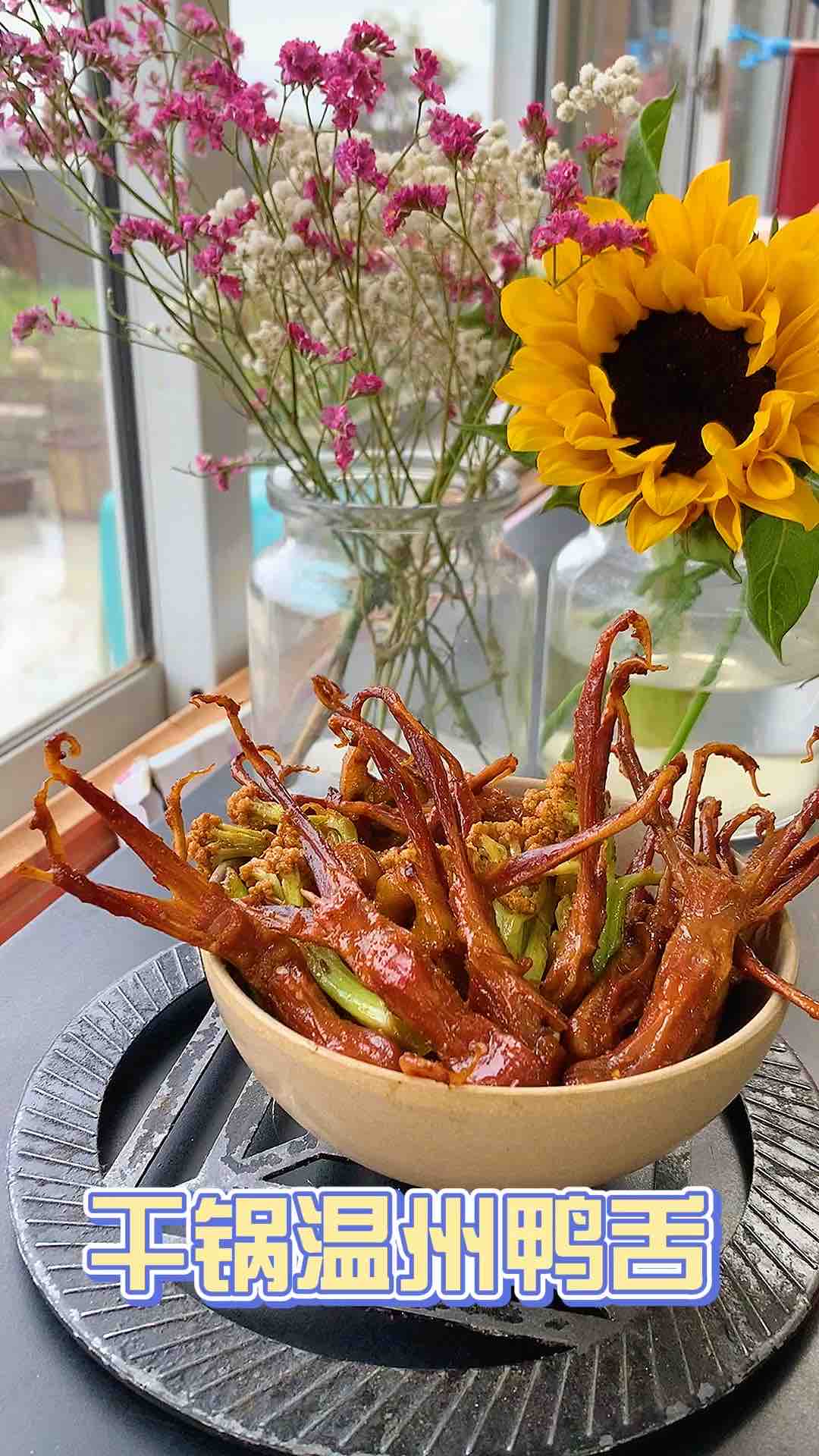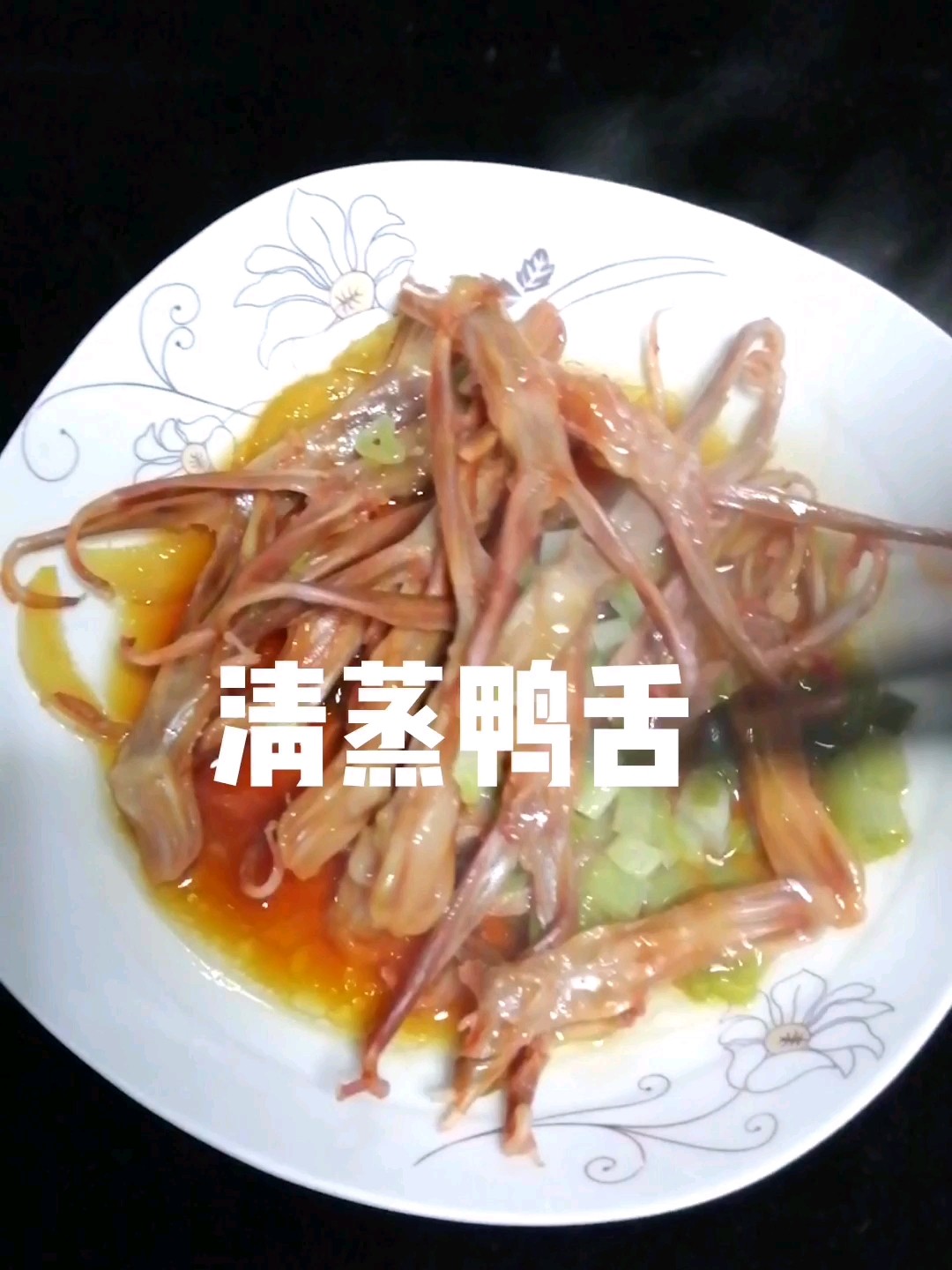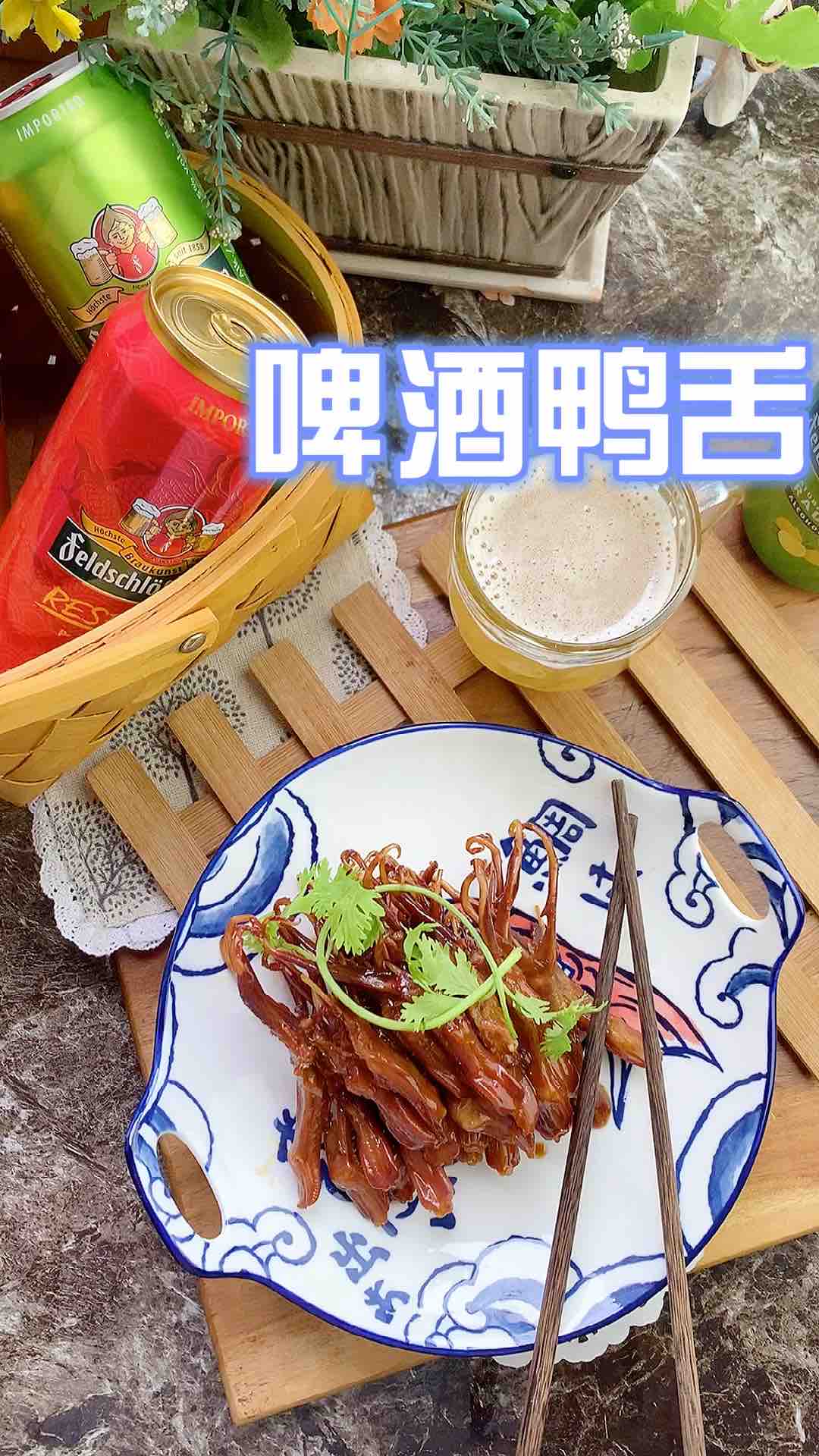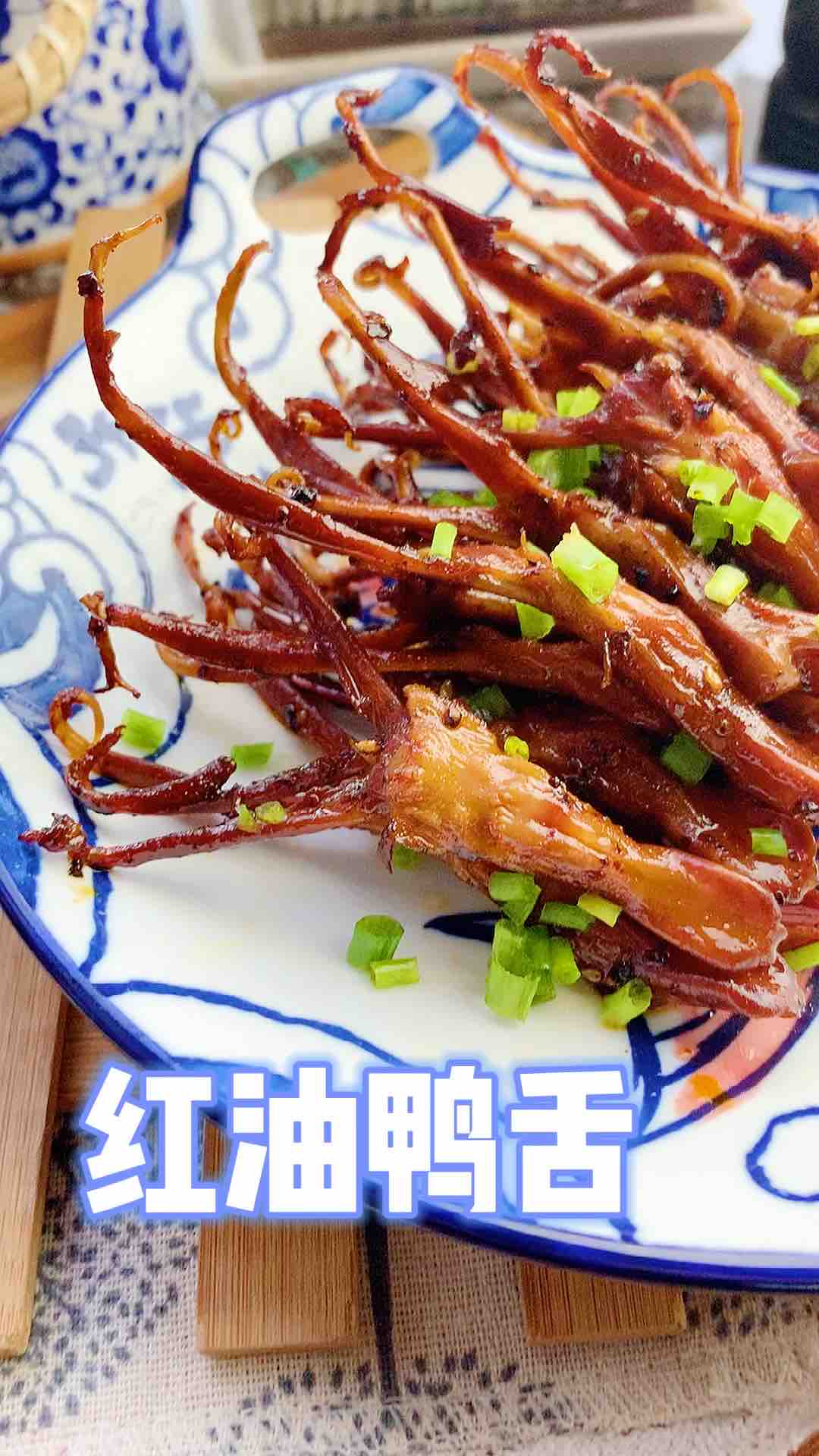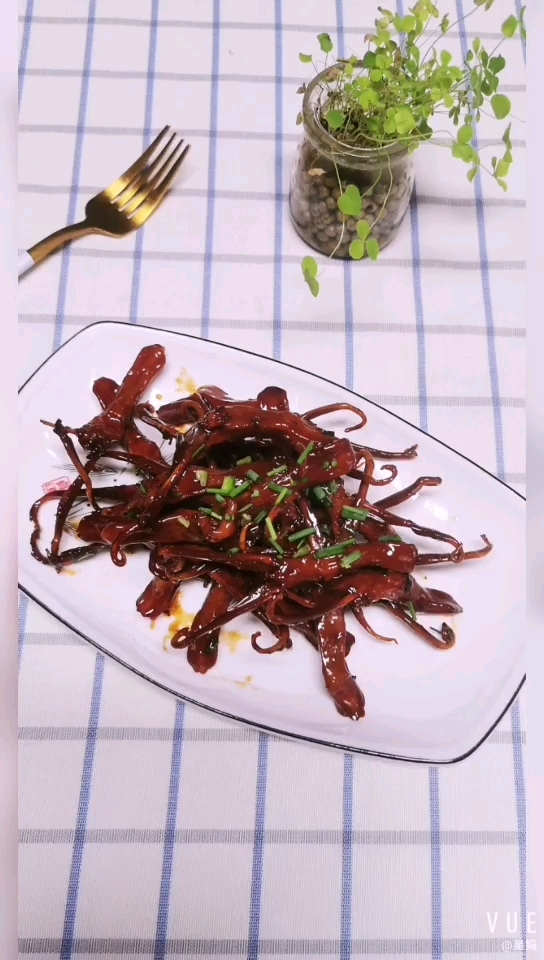Braised Duck Tongue
by Home and everything
Favorite
312
Difficulty
Normal
Time
30m
Serving
3
The nutritional value of duck tongue
1. Duck tongue is cold in nature, and eating more will not get you angry. Duck tongue contains more B vitamins and vitamin E than other meats, which can effectively resist beriberi, neuritis and various inflammations, as well as anti-aging.
2. Protein is about 16%~25%, which is much higher than livestock meat. The fat in duck tongue is moderate, about 7.5% lower than pork. Fatty acids contain unsaturated fatty acids and short-chain saturated fatty acids, with low melting point, digestion and absorption Relatively high.
3. At the same time, duck tongue contains relatively rich niacin, which is one of the two important coenzyme components in the human body, and has a protective effect on patients with heart diseases such as myocardial infarction.
1. Duck tongue is cold in nature, and eating more will not get you angry. Duck tongue contains more B vitamins and vitamin E than other meats, which can effectively resist beriberi, neuritis and various inflammations, as well as anti-aging.
2. Protein is about 16%~25%, which is much higher than livestock meat. The fat in duck tongue is moderate, about 7.5% lower than pork. Fatty acids contain unsaturated fatty acids and short-chain saturated fatty acids, with low melting point, digestion and absorption Relatively high.
3. At the same time, duck tongue contains relatively rich niacin, which is one of the two important coenzyme components in the human body, and has a protective effect on patients with heart diseases such as myocardial infarction.

